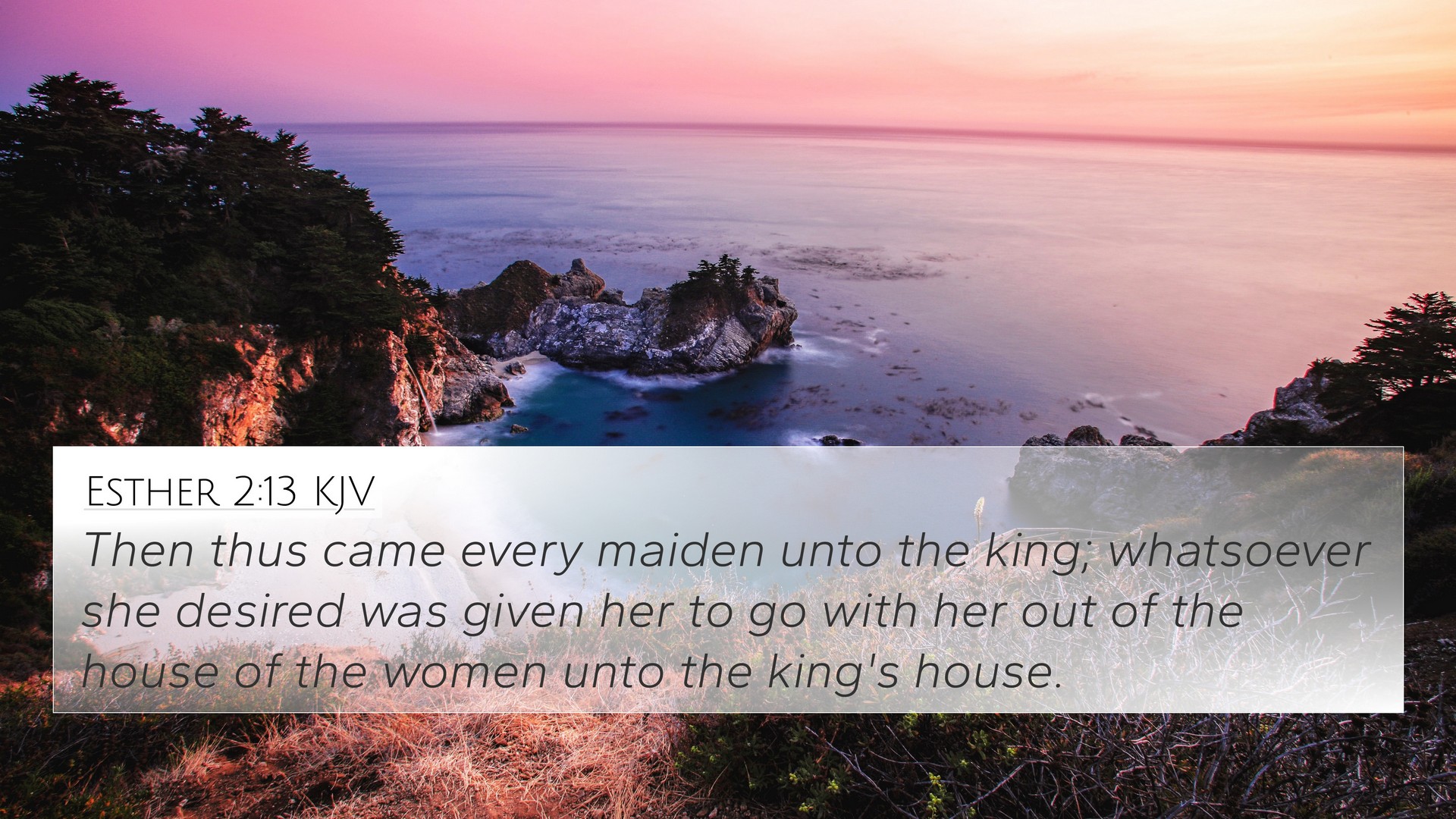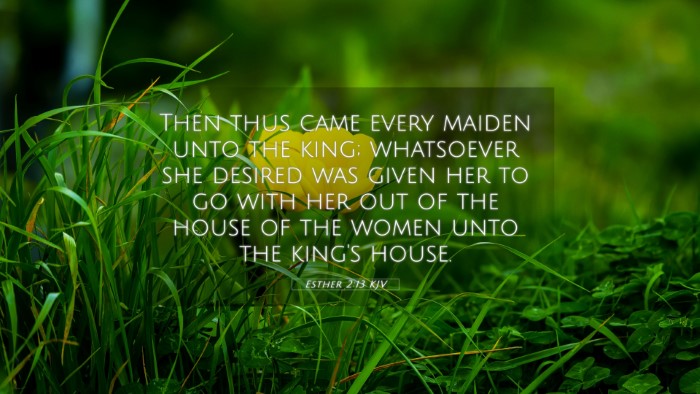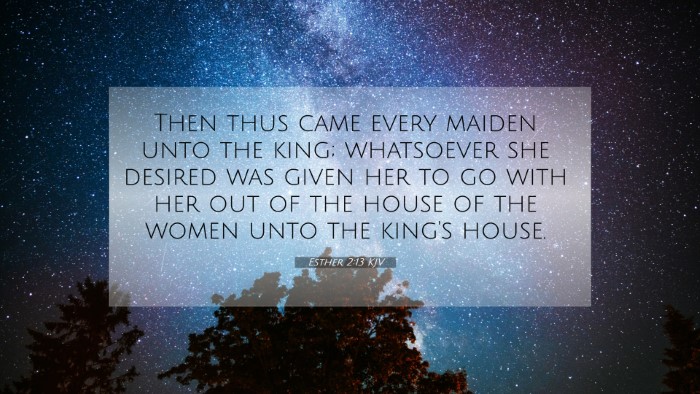Old Testament
Genesis Exodus Leviticus Numbers Deuteronomy Joshua Judges Ruth 1 Samuel 2 Samuel 1 Kings 2 Kings 1 Chronicles 2 Chronicles Ezra Nehemiah Esther Job Psalms Proverbs Ecclesiastes Song of Solomon Isaiah Jeremiah Lamentations Ezekiel Daniel Hosea Joel Amos Obadiah Jonah Micah Nahum Habakkuk Zephaniah Haggai Zechariah MalachiEsther 2:13 Similar Verses
Esther 2:13 Cross References
Then thus came every maiden unto the king; whatsoever she desired was given her to go with her out of the house of the women unto the king's house.
Uncover the Rich Themes and Topics of This Bible Verse
Listed below are the Bible themes associated with Esther 2:13. We invite you to explore each theme to gain deeper insights into the Scriptures.
Esther 2:13 Cross Reference Verses
No cross reference images were found in our system for this Bible passage.
Esther 2:13 Verse Analysis and Similar Verses
Bible Verse Meaning and Interpretation: Esther 2:13
Verse: "Then thus came every maiden unto the king; whatsoever she desired was given her to go with her out of the house of the women unto the king's house."
Summary of Insights
The verse Esther 2:13 presents an essential moment in the narrative of Esther, where candidates for queenship are prepared for their encounter with King Ahasuerus. The verse reveals the royal customs and the provision of the king for young women, highlighting God’s sovereignty in the midst of seemingly frivolous pursuits.
Key Themes and Analysis
- Preparation and Elegance: Each maiden is allowed to take whatever she desires, which implies both the magnificence of the preparations and the attention given to their elegance. Matthew Henry elucidates this by stating that such lavish provision shows the king's wealth and the importance of the event.
- Divine Sovereignty: The overarching theme of God’s sovereign plan in choosing Esther is evident. Albert Barnes notes that God orchestrated events to fulfill His purposes through these seemingly trivial decisions.
- Feminine Agency: The girls are given a voice through a choice, indicating a moment of agency amidst a patriarchal society. Adam Clarke points out the significance of this empowerment in their plight.
- Social Commentary: This verse can also be read as a social critique of beauty standards and the lengths women must go to win favor within societal structures.
- Historical Context: Understanding Persian customs at the time enriches our interpretation, as Matthew Henry highlights the difference in customs when compared to Israelite practices.
Cross-References and Related Scriptures
Esther 2:13 connects with various other biblical texts offering rich insights into its themes:
- Esther 2:7: Introduction of Esther and her orphaned status, showcasing God's providence.
- Esther 4:14: The call to action for Esther, reinforcing her pivotal role in God's plan.
- 2 Corinthians 4:7: The theme of God using unlikely vessels, akin to Esther’s humble beginnings.
- 1 Samuel 16:7: God looks at the heart, contrasting with external beauty emphasized in Esther’s context.
- Proverbs 31:30: A reminder of charm and beauty being fleeting, similar to the women’s temporary access to the king.
- Daniel 1:4: Young men selected for service, highlighting the royal standards of beauty and knowledge.
- Luke 12:27: Comparisons on worldly beauty and value, resonating with the preparation for the king.
Recommendations for Deeper Study
To delve deeper into Esther 2:13, consider the following:
- Utilize a Bible concordance to find direct connections and themes related to the verse.
- Engage in cross-reference Bible study to explore linked verses that can provide further insight.
- Prepare notes by identifying cross-referenced themes in the Bible that may enhance comprehension of Esther’s journey.
- Look for Bible verses that relate to each other to understand broader biblical stories and principles.
- Compile a Bible cross-reference guide targeting Esther and her role in the Biblical narrative.
Conclusion
Esther 2:13 serves not only as a narrative pivot in Esther's story but as a deeper reflection on divine sovereignty, agency, and societal norms. Through cross-referencing and thematic connections, individuals can uncover profound truths that resonate across the pages of Scripture. Engaging in a comparative Bible verse analysis can reveal the interconnectedness of God's Word and guide believers in their studies.


